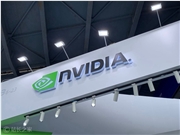Recently, Microsoft released a small language model named Phi-4 on the Hugging Face platform. This model has only 14 billion parameters but has performed exceptionally well in various performance tests, surpassing many well-known models, including OpenAI's GPT-4o and other similar open-source models like Qwen2.5 and Llama-3.1.

In previous tests of the American Mathematics Competition (AMC), Phi-4 scored 91.8, significantly outperforming competitors like Gemini Pro1.5 and Claude3.5Sonnet. Even more surprisingly, this small parameter model achieved a high score of 84.8 on the MMLU test, showcasing its strong reasoning and mathematical capabilities.

Unlike many models that rely on organic data sources, Phi-4 employs innovative methods to generate high-quality synthetic data, including multi-agent prompting, instruction reversal, and self-correction techniques. These methods greatly enhance Phi-4's ability to reason and solve problems, allowing it to tackle more complex tasks.
Phi-4 utilizes a decoder-only Transformer architecture, supporting context lengths of up to 16k, making it well-suited for handling large input data. During its pre-training, it used approximately 1 trillion tokens, combining synthetic data with rigorously selected organic data to ensure excellent performance on benchmarks such as MMLU and HumanEval.
Features and advantages of Phi-4 include: compactness and efficiency suitable for consumer-grade hardware; superior reasoning capabilities in STEM-related tasks compared to previous and larger models; and support for fine-tuning with diverse synthetic datasets to meet specific domain needs. Additionally, Phi-4 provides detailed documentation and an API on the Hugging Face platform, facilitating integration for developers.
In terms of technical innovation, the development of Phi-4 relies on three pillars: multi-agent and self-correction techniques for generating synthetic data, post-training enhancement methods such as rejection sampling and direct preference optimization (DPO), and strictly filtered training data to minimize overlap with benchmarks, thereby improving the model's generalization capabilities. Furthermore, Phi-4 employs key token search (PTS) to identify critical nodes in the decision-making process, optimizing its ability to handle complex reasoning tasks.

With the open-sourcing of Phi-4, the expectations of developers have finally come true. This model is not only available for download on the Hugging Face platform but also supports commercial use under the MIT license. This open policy has attracted significant attention from developers and AI enthusiasts, with Hugging Face's official social media congratulating the release and calling it "the best 14B model ever."
Model link: https://huggingface.co/microsoft/phi-4
Key Points:
🧠 ** Microsoft launches the small parameter model Phi-4, which has only 14 billion parameters yet surpasses many well-known models. **
📊 ** Phi-4 excels in various performance tests, particularly in mathematics and reasoning. **
🌐 Phi-4 is now open-source and supports commercial use, attracting attention and usage from many developers.










